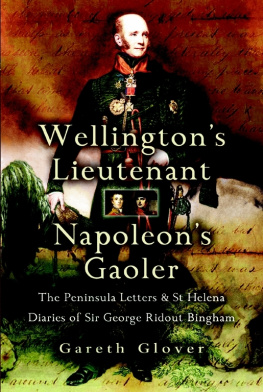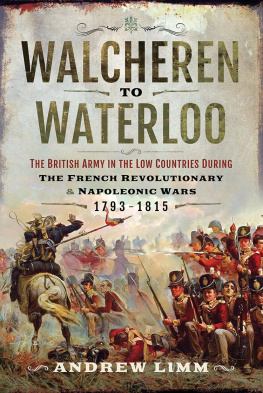The Two Battles of Copenhagen 1801 and 1807
The Two Battles of Copenhagen 1801 and 1807
Britain and Denmark in the Napoleonic Wars
Gareth Glover
First published in Great Britain in 2018 by
Pen & Sword Military
an imprint of
Pen & Sword Books Ltd
47 Church Street
Barnsley
South Yorkshire
S70 2AS
Copyright (c) Gareth Glover 2018
eISBN 978 1 473898 33 2
Mobi ISBN 978 1 473898 32 5
The right of Gareth Glover to be identified as Author of this Work has been asserted by him in accordance with the Copyright, Designs and Patents Act 1988.
All rights reserved. No part of this book may be reproduced or transmitted in any form or by any means, electronic or mechanical including photocopying, recording or by any information storage and retrieval system, without permission from the Publisher in writing.
Pen & Sword Books Ltd incorporates the imprints of Pen & Sword Archaeology, Atlas, Aviation, Battleground, Discovery, Family History, History, Maritime, Military, Naval, Politics, Railways, Select, Social History, Transport, True Crime, and Claymore Press, Frontline Books, Leo Cooper, Praetorian Press, Remember When, Seaforth Publishing and Wharncliffe.
For a complete list of Pen & Sword titles please contact
PEN & SWORD BOOKS LIMITED
47 Church Street, Barnsley, South Yorkshire, S70 2AS, England
E-mail:
Website: www.pen-and-sword.co.uk
List of Plates
Passing Cronborg Castle, by Robert Kittoe.
Toast on the Eve of the Battle of Copenhagen, by Thomas Davidson.
Sub-Lieutenant Peter Willemoes fights Gerner Radeau at Copenhagen 1801, by Christian Molsted.
A moment at the Battle of Copenhagen 1801.
Danish floating battery under fire, Copenhagen 1801
Battle of Copenhagen 1801, by Nicholas Pocock.
Trekroner Battery.
A contemporary Danish Print of the 1801 battle.
Another contemporary Danish print of the 1801 battle.
Battle of Copenhagen 1801, by C.A. Lorentzen.
The Battle of Copenhagen 1801 Danish painting.
Nelsons note to the Crown Prince is delivered, by C.A. Lorentzen.
British Naval General Service Medal for Copenhagen 1801
Danish Defence Medal 1801
The mass grave for the Danish dead of 1801, in Holmens Cemetery.
Two Danish Ships Arrive at Portsmouth, by J.W.M. Turner.
Danish artillery in action with British gunboats, 1807.
British soldiers observe the bombardment of Copenhagen, 1807.
Danish Families Flee to Amager Contemporary Print
The Bombardment of Copenhagen 1807, by Johann Jurgenass contemporary print.
British Highlanders, Copenhagen 1807 contemporary print.
The ruins of Copenhagen 1807 contemporary print.
British brig boarded by Danish gunboats.
Danish gunboat contemporary image.
List of Maps
Faddens Map of the Great Belt dated 1807.
Map of the Sound dated 1812.
Area around Copenhagen from Franz Reilly Map of 1796 (simplified).
Plan of Copenhagen as it looked in 1800.
The Attack on Copenhagen, April 2nd 1801.
Contemporary map of Copenhagen in 1807, the dark area in the north-western corner representing the area destroyed by fire.
Heligoland and the North German Coast section of the Thompson map.
Preface
Now Denmark Trembld to its deepest base
Tho conscious valour filld its hardy race.
In the city of Copenhagen even today, Nelsons attack on the Danish fleet in 1801 and the theft of the Danish navy in 1807 are often confused and even conflated into one. Many Danes today refer to Nelson as the Stealer of the Danish Navy and wrongly label him with the guilt of the 1807 siege. British knowledge of the operations at Copenhagen is also often poor and patchy, with some knowledge of Nelsons triumph but often little else. This confusion needs correcting, but how has this come about?
Over the years a few books have been published describing Britains dealings with Denmark during the Napoleonic Wars, but they all concentrate specifically on only one or other of the two major operations carried out by British forces against Copenhagen during the period, as if they were completely unrelated incidents. This occurs for several reasons. Those who concentrate on the Battle of Copenhagen of 1801, the second and perhaps hardest-won success of Admiral Horatio Nelsons trilogy of stunning victories, rightly view it as a naval operation alone and consistently see later events as irrelevant to this episode, taking place when Nelson was no more, whereas those who concentrate on the later siege of Copenhagen in 1807 rarely give much more than a cursory glance at previous events. Again, personalities have a habit of obscuring the bigger picture, much of the writing on the siege concentrating on the first European success of Arthur Wellesley, the later Duke of Wellington, rather than the main events. It is as if the actions of 1801 bear little or no relevance on the largely land-based operations of the latter.
Nothing, however, could be further from the truth. These single-operation accounts fail to follow the connecting thread of relations between Britain and Denmark throughout the period or to adequately explore how the lessons of the first campaign influenced the second. Nor indeed do they often consider what happened after these two momentous episodes, during the remaining eight years of war in Europe, including the consequent loss of Heligoland, the Danish West Indies and indeed the ultimate loss of Norway to Denmarks arch-enemy Sweden and state bankruptcy.
There is much British guilt associated with both of the Copenhagen operations, with many of those involved in them uncertain of the legitimacy of British actions on either occasion, and clearly troubled by the legality of the orders they received from on high. The Danes had then and retain to this very day a profound belief that the British acted illegally and immorally. These are indeed difficult waters to navigate.
The Danes and the British have, however, always shared a mutual respect for each other and both sides in these conflicts displayed not only a great deal of fortitude, gallantry and bravery, but also compassion and sympathy whilst ensuring that the operational objectives were attained, no matter how distasteful they were to the individuals involved. Perhaps the best illustration of this was that the British public received news of these events with mixed emotions and it is certain that victory celebrations were particularly muted on these occasions. It highlights perhaps more than anything, that the British and the Danes recognize kindred spirits, both punching militarily way above their weight, and this short period of conflict is anathema to both sides, an unfortunate episode best forgotten.
But to ignore it cannot be right, as sweeping past events under the carpet rarely helps anyone. It is therefore high time that the fascinating story of Britains relationship with Denmark throughout the Napoleonic Wars is dealt with in the whole, looking at both the naval and the land operations both in the Baltic and farther afield. This history of the Anglo-Danish war is the first to look at this conflict in the whole, but also to view each occurrence from the viewpoint of both protagonists, to try to understand why it happened and why the British felt compelled to carry out the two attacks on Copenhagen.











